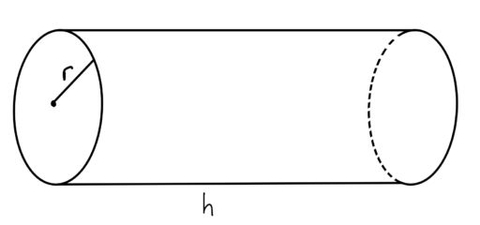Michael Geraldo Nabasa
Introduction
MORNING ENGINEERING.
Hi, my name is Michael Geraldo Nabasa (2106732872), and I am currently pursuing a Bachelor's degree in Mechanical Engineering, the University of Indonesia.
Numerical Metode
Metode numerik adalah pendekatan komputasional untuk memecahkan masalah matematika dengan menggunakan algoritma dan perhitungan komputer. Konsep dasarnya meliputi representasi numerik, aproksimasi, diskritisasi, metode iteratif, analisis kesalahan, pemecahan persamaan, integrasi numerik, dan analisis statistik. Metode ini digunakan dalam berbagai bidang dan memungkinkan pemecahan masalah matematika yang kompleks.
Consciousness
Definition : pengalaman subjektif yang menyertai kesadaran diri kita dan persepsi terhadap dunia. Ini melibatkan pemahaman, kesadaran, dan respons terhadap pikiran, perasaan, dan lingkungan kita
By substituting x=1 into the equation, the expression evaluates to 0/0, which is undefined in basic mathematics due to division by zero. To resolve this, we can factorize (X^2 - 1) as (X+1)(X-1), transforming the equation into a well-defined form.
hydrogen Storage
Hydrogen storage refers to keeping hydrogen in a safe and secure manner until it is needed for use. There are different ways to store hydrogen:
1. Compressed Gas: Hydrogen is stored in tanks under high pressure. It's like squeezing a lot of hydrogen into a small space. This method is used for some vehicles and stationary applications.
2. Liquid Hydrogen: Hydrogen is cooled to a very low temperature and stored as a liquid. It takes up less space than compressed gas, but it needs special insulation and handling. It's commonly used in space exploration.
3. Metal Hydrides: Certain metals can absorb hydrogen and hold onto it. These metals act like sponges for hydrogen. This method provides high-density storage, but it can be expensive and has limited capacity.
4. Chemical Hydrides: Hydrogen can be chemically combined with other materials to form compounds called chemical hydrides. These compounds store hydrogen at room temperature but can release it when needed. Finding suitable hydrides is a challenge.
5. Carbon-based Materials: Some special materials, like carbon nanotubes, can hold hydrogen on their surfaces. It's like the hydrogen molecules stick to the material. However, more research is needed to make this method practical.
6. Underground Storage: Hydrogen can be stored underground in places like depleted oil or gas fields. It uses existing underground spaces to hold large amounts of hydrogen. Safety measures are important to prevent leaks.
These methods are being researched and improved to make hydrogen storage more efficient, safe, and practical for different uses.
To effectively design and enhance a pressurized hydrogen tank, I have gathered several key considerations that need to be addressed. These include:
1. To enhance the valve and fitting system's design, it is crucial to optimize them for compatibility with high-pressure hydrogen gas. This optimization is essential in order to mitigate the risk of leaks or any other potential safety concerns.
2. To ensure safety, a pressure relief device should be employed to allow the container to safely release excess pressure during emergency situations. This safety feature guarantees that the container does not burst in the event of over-pressurization.
3. To reduce weight and ensure the container's ability to withstand pressure, it is important to design the storage container using lightweight and durable materials that are both strong and cost-effective. Suitable materials may include carbon fiber, aluminum, or other composite materials.
4. To guarantee the reliability and performance of the storage system, it is imperative to subject it to suitable testing and certification procedures to ensure compliance with applicable safety standards. This step ensures that the system meets the necessary requirements and can be relied upon for its intended purpose.
5. To stay within the designated budget, it is beneficial to investigate cost-effective manufacturing techniques for the pressure vessel, such as extrusion or casting. Utilizing these methods can assist in managing production costs efficiently while maintaining the desired quality and functionality of the vessel.
Hydrogen Storage Design
Data Operasional:
1. Kapasitas : 1 Liter
2. Tekanan : 8 Bar
3. Cost : Rp 500.000,00
4. Temp Operational : 30 - 40 Deg Celcius
5. Instrument Control : Pressure Regulator range 1 - 15 Bar
A. Perhitungan tinggi tabung
Rumusnya adalah
V : πr²h
1. V diketahui 1 Liter
2. Diameternya asumsikan 10 cm sehingga jari jarinya adalah 5 cm
1000 : 3,14 x (5)² x h
1000 : 78,5h
h : 12,73 cm
3. Pemilihan Material
Material yang digunakan adalah sheet metal ASTM A36 dengan yield strength 248 MPa, sehingga didapatkan allowable stress adalah 165,3 Mpa
4. Ketebalan Tabung
E = 0,60
P = 8 Bar (116 Psi)
R = 50 mm = 1,9685 inch
S = 24000 ksi
Corrosion allowance = 1 mm = 0.039 inch
Sehingga bisa kita hitung ketebalan maksimalnya adalah
t : 232,87 : 14330.4 = 0.01625 inch
Cost & Expenses Analysis
1. Biaya Material : [[1]]

